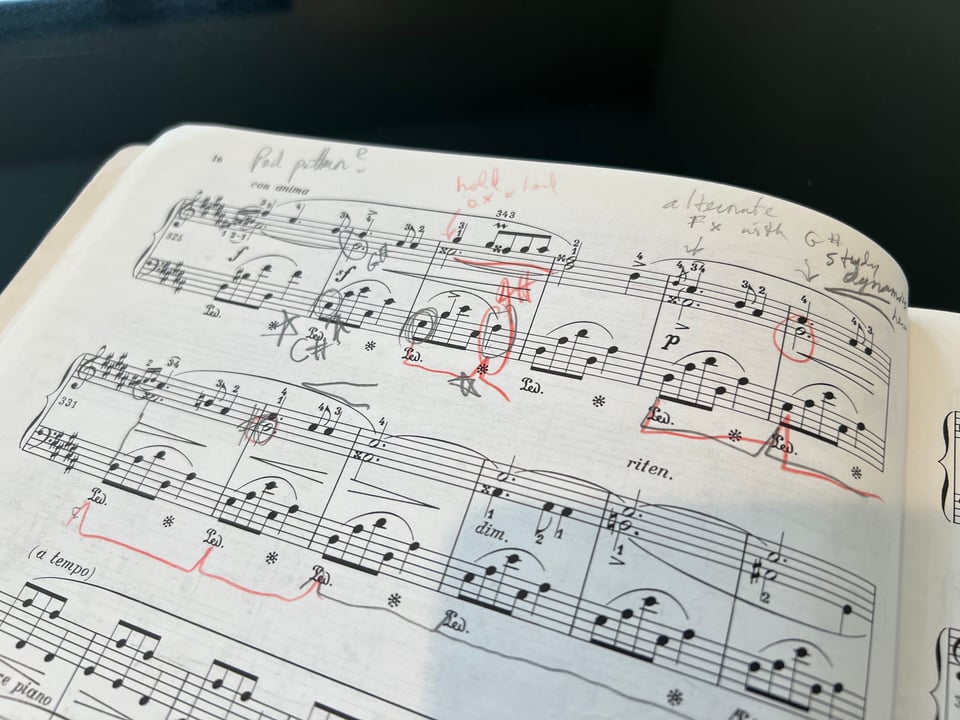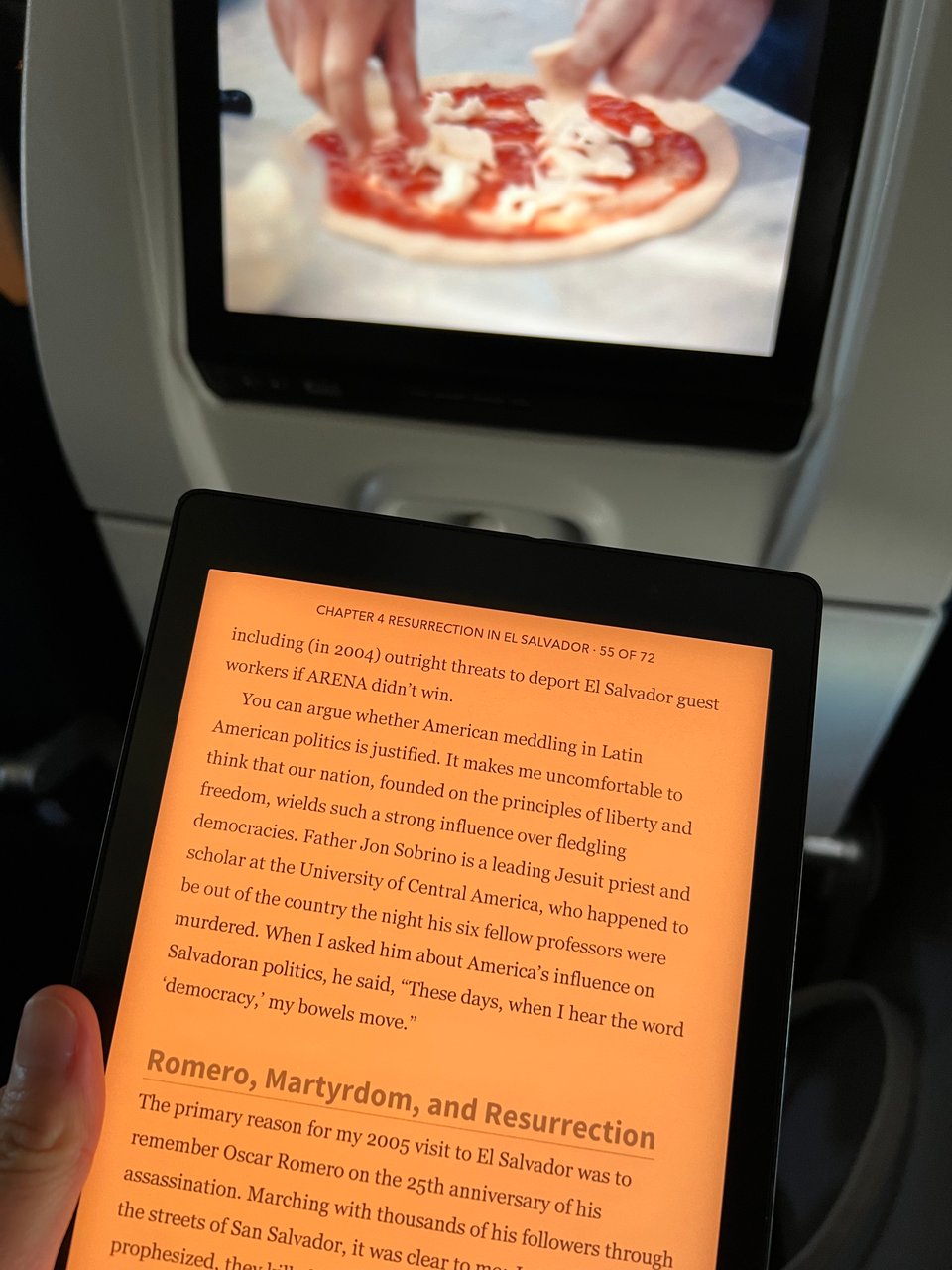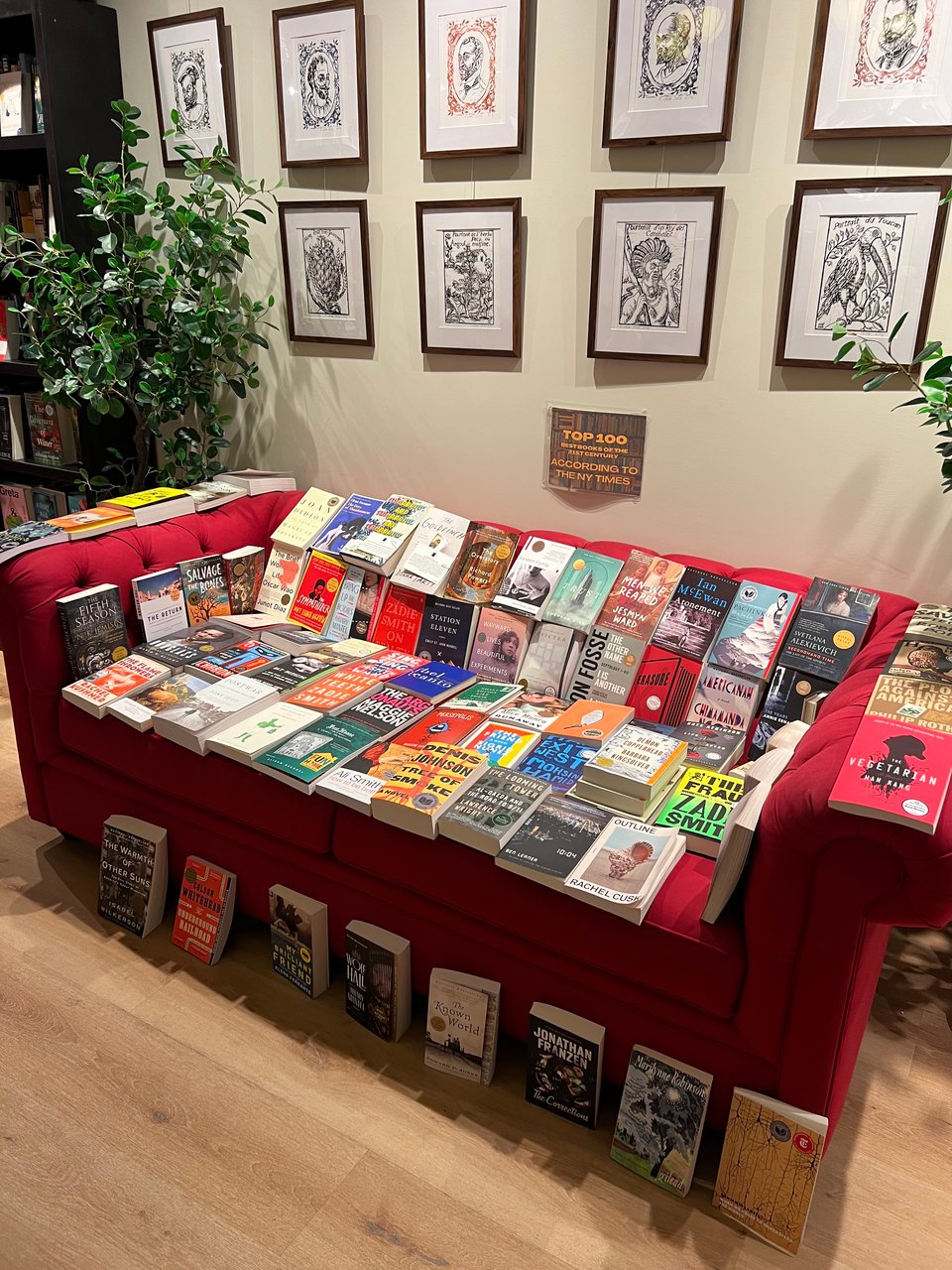On time-release lessons and scenes that make me cry
This post uses embedded audio/video which doesn’t work in email, so I recommend clicking through to viewing this in your browser for the optimized newsletter experience!
One genuinely embarrassing thing about me is that in my second-favorite Star Wars movie, The Last Jedi (that’s not the embarrassing part, I stand by that), there’s one scene that always, always reduces me to a weeping, gelatinous mess. It’s when Yoda appears to Luke and drops a poignant bomb about the real role of a Jedi master:
“We are what they grow beyond,” Yoda says sagely. “That is the true burden of all masters.”
THAT LINE. It gets me EVERY SINGLE TIME. I tried explaining it to someone the other day and the moment I said “We are what they grow beyond,” I got so choked up I had to excuse myself and sprint to get a tissue. If you sit next to me on a plane and see me boot up The Last Jedi, get yourself a poncho, stat—I can’t be held accountable if you’re drenched in the inevitable waterworks.
(Just pulling up the video to embed here, and typing the words out, cued up a fresh round of tears. I will also confess that when I saw Cars 3—CARS 3, the most naked “let’s sell billions of dollars of merch to children” installment of the talking cars franchise—I dissolved into sobs at the scene where Lightning McQueen realizes The Importance of Mentorship, and rewatching it just now made things worse. This is the most crying that’s ever happened in my writing a newsletter, incited by the most embarrassing combination of movies.)
I reflect all the time on the mentors I’ve had, about the things they taught me about both music and life. I don’t know if this is how anyone else felt about their music teachers, but I idolized and worshipped so many of the pedagogues I studied with, I wanted so badly to be like them and to win their approval, and I labored for years under the belief that they held the secrets to a successful career and happy life (and that those secrets would be mine if I did a good enough job doing the things they told me to do). I think a lot of teachers know and sense this in their students. (The best ones, I think, maintain a sort of emotional distance throughout the teacher-student relationship, and the worst ones exploit that desperate eagerness for their own egos and pleasure.)
Ironically, being in that state of “I’ll do whatever you tell me” puppyhood keeps you from fully internalizing the things your teacher really wants you to learn. It’s the curse of the student: you can only see what’s right in front of you. In the past several years I’ve noticed that I’ve grown out of some of the lessons my teachers taught and into some of the lessons I didn’t know they were teaching me at the time.

Honestly, there was no shortage of lessons I wasn't learning, evidenced by the fact that one teacher got fed up and had to break out the red colored pencil (!!!) at one point.
For example, one of my teachers spent a lot of time in studio class expounding on the importance of tending to your spiritual, non-musical self, which at the time I thought was totally hypocritical and contradictory, given that in my lessons he emphasized how much more I needed to practice, how I needed to obsess over every single note, and to not settle for anything less than the exact sound the composer demanded. How could he tell me to practice and obsess more over music, and then turn around and talk about how much we were supposed to not practice and to focus on things other than music? It wasn’t until later that I realized both were lessons I needed at different times; one was a lesson for now, and one was a lesson for later, when the work I’d put into obsessively practicing had settled into my brain and body and the work of creating meaning and coherence required me to be somebody who didn’t just think about music 24/7.
A harder lesson for me to learn, that I’m only just coming around on, is the idea that in some cases, the nos I’ve gotten from my mentors have actually been as supportive as the yeses.
Not to brag, but I’ve gotten a lot of yeses in my life: my first piano teacher pulling teenage me aside after a performance and telling me I had a gift and to not give up the piano; the stern, scary director of a summer program calling me into her office and privately telling me that she thought I had what it took to “make it” and to keep going; a renowned celebrity pedagogue I had one lesson with beatifically taking my hands in his when I ran into him in the hallway and telling me that I was “very talented.” (That last one may or may not have been sincere—to this day I have no idea if that was just the kind of thing he said to everyone, but I don’t care, it happened to me and I’m keeping it.)
For years I’ve cherished those memories of yeses that made me feel special and chosen and tried to forget the nos that contradicted the narrative: one mentor talking me out of shelling out money for a pay-to-play program that would have gotten me on the stage of Carnegie Hall and, I was sure, launch me into the public eye; another mentor dissuading me from my idealistic plans to go to a specific school in a specific city which I was convinced would catapult me into a glittering career, because he thought the environment was too cutthroat for me to do well. (This last one actually happened twice, because I brought it up again after a few years when I was sure I had gotten better and was totally ready.) At the time these nos crushed me: they didn’t think I could do these things. But I was special! People had told me so! Why didn’t they believe in me?
The curse of the student: you can only see what’s right in front of you. A few years passed and I realized that peers who had done the things my mentors talked me out of ended up, at best, no further along (but out a lot of money), or, at worst, chewed up, miserable, and driven out of music. My teachers had already seen it happen, they could see it coming, and they totally knew.
Sometimes a no is an act of love. A really good mentor, one who cares about the student in front of them as a person—not just as a musician—recognizes that pure love for music is a precious thing, and it grows more precious the longer you’re on the track to make something out of it. In the moment, I thought being told no meant my teacher didn’t care about me; each time, it wasn’t until I’d been away from them for a while that I could see they did care in ways I couldn’t understand at the time.
I think—or at least, I like to think—that my teachers planted these lessons, like little time-release bombs, knowing that I wouldn’t understand what they were doing for me until much later. I don’t know how to tell them—it’s hard when the relationship was never touchy-feely to begin with—that now I understand, and am grateful.
All I can do is watch The Last Jedi and sob like a baby when Yoda shows up. Hey, can you pass the tissues?
Sneak peek
I promise, work on the recordings I made in 2023 and this year is happening. This week I re-listened to my recording of the Fanny Mendelssohn Hensel Sonata in G minor and shining out between the clouds of self-loathing was the reminder that I really love this piece.
It was when I was listening to this section in the first movement that I went, “Oh, right, this is such a cool piece and this was fun to play! And this is one of the moments that inspired the idea that this was supposed to be a concerto!”
Full thing to be released…later, at some point.
I’ve been Rickpilled
As you may have seen on Bluesky, I have recently discovered the existence of Rick Steves, who is now one of my favorite people. I usually try not to idolize random celebrities, because 1) that’s unhealthy and 2) it just seems like a prime opportunity for a milkshake ducking. However, every additional thing I read about/by Rick Steves makes me love him more and more. That’s right, I’ve been Rickpilled.
First of all, Rick Steves is a pianist whose first trip to Europe was to visit a piano factory (his parents ran a piano business), and his first travel agency was also a piano teaching studio. (No, I don’t know how that worked either. You got piano lessons and then you got…like, an itinerary for your vacation to Italy, I guess?) What this officially means is that me writing about Rick Steves, a pianist, is totally relevant to this newsletter.
Second of all, the man is just a delight. I read this 2019 NYT profile of him and was so charmed.
In this town car, however, rolling through Midtown, Steves was brimming with delight. He was between a TV interview at the New York Stock Exchange and a podcast at CBS, and he seemed as enchanted by all the big-city bustle as the most wide-eyed tourist.
“Look at all the buildings!” he exclaimed. “There’s so much energy! Man, oh, man!”
A woman crossed the street pushing two Yorkies in a stroller.
“How cute!” Steves shouted.
The town car crawled toward a shabby metal hulk spanning the East River.
“Wow!” Steves said. “Is that the Brooklyn Bridge?”
It was almost the opposite of the Brooklyn Bridge. The Brooklyn Bridge is one of the most recognizable structures in the world: a stretched stone cathedral. This was its unloved upriver cousin, a tangle of discolored metal, vibrating with cars, perpetually under construction. The driver told Steves that it was the Ed Koch Queensboro Bridge — or, as most New Yorkers still thought of it, the 59th Street Bridge.
This revelation only increased Steves’s wonder.
“The 59th Street Bridge!” he said. “That’s one of my favorite songs!”
Then last week I read his book Travel as a Political Act and I was extremely struck by how he strategically uses his own folksy, wholesome appeal to drive home lessons about weaponized fear, what protecting democracy really looks like, and our communal complicity in perpetuating violence and poverty. At one point in the book, he writes about his first trip to El Salvador and about getting so mad seeing what the US has done to that country that when he got back to the US he self-published a book on what he learned, flew to Washington, D.C., and hand-delivered his book to every Congressperson’s office. That’s such Rick Steves energy, and I love it so much.

Me on the plane, reading Rick Steves' chapter on El Salvador, while playing Stanley Tucci: Searching for Italy on my screen, because I just want to OD on gentle goodhearted traveling men.
I was sitting on a plane, reading Steves’ book, when my husband texted me this article about Steves getting diagnosed with prostate cancer. I was not prepared for Steves saying this:
“I’ve been fortunate to have never spent a night in a hospital — and I find myself going into this adventure almost like it’s some amazing, really important trip.”
RICK STEVES IS SO PURE THAT HE’S TALKING ABOUT GOING INTO THE HOSPITAL LIKE HE’S GOING ON VACATION.
This man is a national treasure.
Return of the Bookstagram

Photo I snapped last week in La Joie de Vivre in New York.
If you’ve been here for a while, you may recall when half this newsletter was just me talking about books, and that I used to review every new book I read on Instagram (for some reason). I stopped doing that this year, then last week suddenly decided that I missed it (???), so my Bookstagram is now back.
I have finished 48 books so far this year (and technically have 4 I’m currently reading) and have only reviewed 10 so far. And, you know, it’s not like I have any other work to do or something. It’s fine, I’m fine, I’m not entirely sure why I do this to myself.
Songs that had me in a chokehold
Do you ever encounter a song that just sinks its tenterhooks into you, making you listen to it againandagainandagainandagainandagain? Just me? Cool, I always knew there was something wrong with me.
In the past couple of weeks, these are the songs that put me in a chokehold I couldn’t get out of.
I. “Vultures” by Misterwives and PVRIS
I am a sucker—a SUCKER—for pop songs with a touch of chromaticism (in their melodies, that is—I have yet to encounter a pop song brave enough to mess around with harmonic chromaticism, but how fun would that be) and the fact that this has a sort of grungy rock thing going on also makes it super fun.
This is one of those sneaky songs that isn’t catchy but has a dirty-smokey-sexy thing going on that makes every hit of the chorus feel like a kind of burning ecstasy.
III. “Ache in My Heart” by Palaye Royale
There’s something insouciant yet…fatalistic? that I can’t quite pin down in this song—it makes me feel the same way as when I listen to Piazzolla. I keep waking up with this song in my head, please send help. 🎹
-
I love your writing and this newsletter. (Is that weird, to get praise for this rather than for the music?) As somebody who's sort of in the mentoring biz, though, I had a reaction to your thought about time-release bombs, and it's this: Speaking for myself, I'm not that smart. It's all I can do to try and give people good advice; I don't have the chops to work it out so that a time bomb will go off for them years down the line. And more importantly, if you're (not you, Sharon -- some other "you" who's in the mentoring biz) approaching mentoring that way, you're doing it wrong. Because you're making it about you, and it has to be about the person you're teaching. It needs to be OK that the person you're mentoring maybe never will appreciate it (that happens), or else you're approaching the job in the wrong way. My two cents, anyway.
Add a comment: